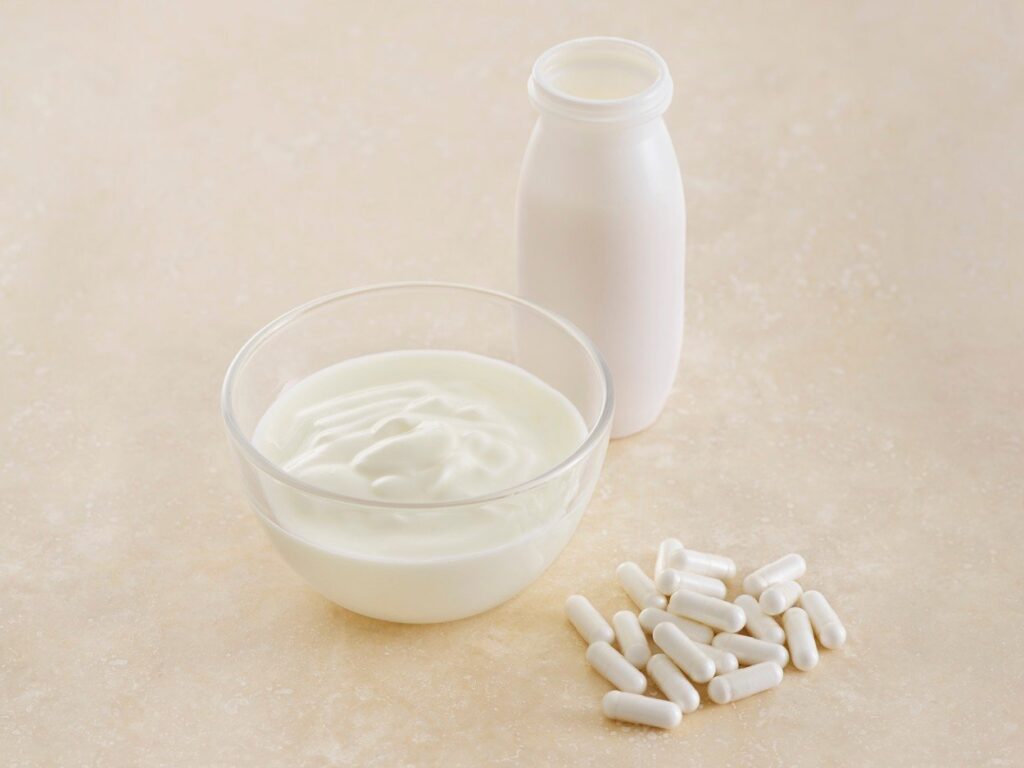Probiotics have developed a reputation as modern-day gut health stalwarts. Take a probiotic pill and enjoy the benefits, which include better digestion, a stronger immune system, and a lower risk of anxiety, sadness, and even cancer. While Fiber has long been a tried-and-true method for keeping your bowel movements in check. Probiotics vs Fiber – are they both necessary for optimal digestion? probioticseverything.comProbiotics Vs Fiber
What Are Probiotics?
Probiotics have received a lot of attention recently, and for good cause. They’re commonly referred to as the “good” bacteria in your stomach that can help with digestion and relieve unpleasant symptoms like gas and bloating. However, their health benefits extend far beyond keeping a healthy digestive system and pleasant bowel movements. probioticseverything.comProbiotics Vs Fiber
It all boils down to the trillions of bacteria (probiotics included) that live in your gut. Your gut microbiome is made up of all of these bacteria. Probiotics play two crucial roles in this environment: maintaining the microbiome’s balance and harmony, and supporting the health of the GI lining, which acts as a gatekeeper for things wanting to enter your bloodstream. probioticseverything.comProbiotics Vs Fiber
The gut-immunity link, however, is likely the most significant. Abundant research has shown an important link between the human gastrointestinal (GI) tract and immune system function. In fact, specialists estimate that the gut contains 70% of your immune system! Probiotics are present in fermented foods like yogurt, kimchi, natto, and many more. Another popular choice is taking probiotic supplements. There are a number of supplements available that contain specific probiotic strains to help with gastrointestinal, cardiac, and immunological health. probioticseverything.comProbiotics Vs Fiber
What Is Fiber?
Despite the fact that humans have been ingesting fiber for over 10,000 years, the phrase “dietary fiber” was first coined in 1953. Dietary fiber is a macronutrient that comprises of nondigestible carbohydrates and lignin, which are found in plants and are intrinsic and intact. Fibers, in the most basic sense, are the components of fruits and vegetables that the human body cannot digest. probioticseverything.comProbiotics Vs Fiber
Benefiber, Metamucil, and Citrucel are some examples of commercial fibers. Fibers have a variety of roles, including facilitating food passage through the GI tract and promoting healthy lipid levels in the blood. probioticseverything.comProbiotics Vs Fiber
Fibers are divided into two categories: soluble and insoluble fibers. Plant cellulose and hemicellulose, which do not dissolve in water, are the primary sources of insoluble fiber. Rather, it draws water into your stools, making them bulkier and easier to pass. Even better, insoluble fiber has been shown to boost the health of your colon in addition to aiding normal bowel movements. Soluble fiber is a gel-like material comprised primarily of plant pectin and gums, which dissolves in water. This fibrous gel is recognized for assisting in the collection of dietary fats, cholesterol, bile salts, and carbohydrates as they pass through the intestines and are ejected from the body. probioticseverything.comProbiotics Vs Fiber
Eating a wide variety of fruits, vegetables, legumes, and grains is the greatest method to increase your fiber consumption. Instead of canned or processed foods, opt for whole foods. probioticseverything.com

